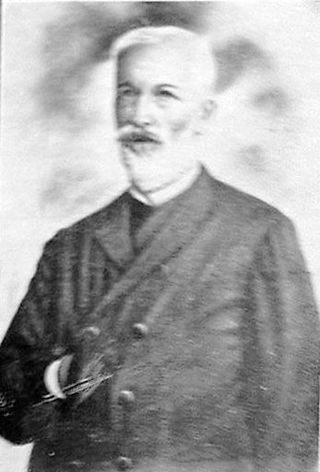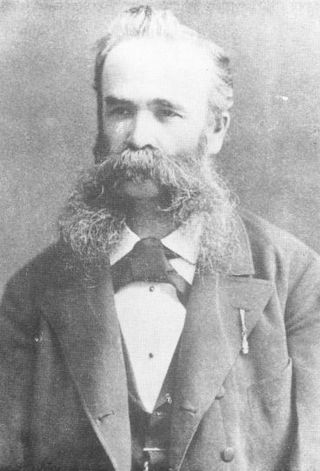
"Deșteaptă-te, române!" is the national anthem of Romania and former national anthem of Moldova.

"Limba noastră" is the national anthem of Moldova. It has been used since 1994 and was officially adopted on 22 July 1995.

Râmnicu Vâlcea is a city in Romania. Located in the south-central part of the country, in the historical province of Oltenia, it is the seat of Vâlcea County and its main urban settlement. According to the 2021 Romanian census, it has a population of 93,151.
Trei culori was the national anthem of the Socialist Republic of Romania from 1977 to 1990. On 24 January 1990, after the Romanian Revolution, it was officially replaced by "Deșteaptă-te, române!". Before 1977, the national anthem was "E scris pe tricolor Unire".

Lucian Blaga was a Romanian philosopher, poet, playwright, poetry translator and novelist. He was a commanding personality of the Romanian culture of the interbellum period.

Anton Pann was an Ottoman-born Wallachian composer, musicologist, and Romanian-language poet, also noted for his activities as a printer, translator, and schoolteacher. Pann was an influential folklorist and collector of proverbs, as well as a lexicographer and textbook author.

George Bariț, was an ethnic Romanian Austro-Hungarian historian, philologist, playwright, politician, businessman and journalist, the founder of the Romanian language press in Transylvania.
Andrei Mureșanu High School is a high school in the Șcheii Brașovului neighborhood of Brașov, Romania. It is situated close to Piața Unirii and the Saint Nicholas Church. The school is named after the well-known Romanian poet Andrei Mureșanu, who composed the lyrics of the national anthem of Romania, "Deșteaptă-te, române!"

Ioan Axente Sever was a Romanian revolutionary in Austria-Hungary who participated in the Transylvanian Revolution of 1848.
This is a list of 1990 events that occurred in Romania.

Ioan Alexandru Lapedatu was an ethnic Romanian Austro-Hungarian poet, prose writer and newspaper contributor.

Unirea was a newspaper published at Blaj, in the Transylvania region, which was administered by the Kingdom of Hungary and eventually became part of Romania in 1920. Appearing between January 3, 1891, and March 24, 1945, it was an official publication of the Romanian Greek-Catholic Church.

Ion Codru-Drăgușanu was an Austro-Hungarian ethnic Romanian prose writer.
Aron Densușianu was an Austrian Empire-born Romanian critic, literary historian, folklorist and poet.
Enea Hodoș was an Imperial Austrian-born Romanian prose writer and folklorist.

Ion Chinezu was an Austro-Hungarian-born Romanian literary critic and translator.

Ioan Pușcariu was an Austro-Hungarian ethnic Romanian historian, genealogist and administrator. A native of the Brașov area, he studied law until the 1848 revolution, when he took up arms. After order was restored, he embarked on a four-decade career in government that took him throughout his native Transylvania as well as to Vienna and Budapest. During the 1860s, Pușcariu was involved in the political debates of his province's Romanians, and also helped set up their key cultural organization, the Transylvanian Association for Romanian Literature and the Culture of the Romanian People (ASTRA). His historical interests lay primarily with the Transylvanian Romanians' nobility and their genealogy; Pușcariu's research into the subject secured his election to the Romanian Academy.

Alexandru Emanoil Florescu was a Wallachian and Romanian politician. Florescu came from a boyar family; his father Manolache was a vornic, while his mother was Tinca Faca. He was the younger brother of Ion Emanuel Florescu. Born in Brașov, in the Transylvania region of the Austrian Empire, he left for the Wallachian capital Bucharest, where he attended Saint Sava College. He graduated in 1840, and Florescu then became a copyist at the state secretariat, later rising to secretary. In 1846 he went to Paris, studying law for two years. After the Wallachian Revolution of 1848, he returned home and was named to a number of terms as county prefect and prefect of the Bucharest police.

Ioan Bran de Lemény et Kozla, also known as Ioan Bran, was a lawyer, a revolutionary, and Transylvania's first Romanian civil servant. He was one of the organizers of the Romanian Legions and the captain of Fogaras County during the "liberal regime" (1861–1865).
Events from the year 1987 in the Socialist Republic of Romania.















